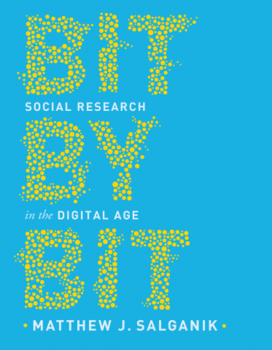The book: Tools like social media, cell phones, and other digital marvels have changed how we live, but they have also enabled scientists to collect and process data on human behavior on a huge scale. In Bit by Bit (Princeton University Press), one of the top computational social scientists, Matthew Salganik, provides a blueprint for how to use these huge amounts of data. He explains how big data transforms the ways that social scientists observe behavior, run experiments, and ask questions through real-world examples, while laying out ethical principles for this new line of research.
The author: Matthew J. Salganik is a sociology professor at Princeton and is affiliated with the Center for Information Technology Policy and the Center for Statistics and Machine Learning. His research has been featured in the New York Times, the Wall Street Journal, and The New Yorker.
Opening lines: “About 1,000 Rwandans received a call from Joshua Blumenstock and his colleagues. These researchers were studying wealth and poverty by conducting a survey of a random sample of people from a database of 1.5 million customers of Rwanda’s largest mobile phone provider… In addition to the survey data, Blumenstock and colleagues had the complete call records for all 1.5 million people. Combining these two sources of data, they used the survey data to train a machine learning model to predict a person’s wealth based on their call records… they were able to produce high-resolution maps of the geographic distribution of wealth in Rwanda. In particular, they could produce an estimated wealth for each of Rwanda’s 2,148 cells, the smallest administrative unit in the country.
It was impossible to validate these estimates because nobody had ever produced estimates for such small geographic areas in Rwanda. But when Blumenstock and colleagues aggregated their estimates to Rwanda’s thirty districts, they found that these estimates were very similar to those from the demographic and Health Survey, which is widely considered to be the gold standard of surveys in developing countries. Although these two approaches produced similar estimates in this case, the approach of Blumenstock and colleagues was about ten times faster and fifty times cheaper than the traditional Demographic and Health Surveys.”
Reviews: Duncan Watts of Microsoft Research says, “Written by one of the world's most respected computational social scientists, Bit by Bit addresses the benefits as well as the pitfalls of leveraging digital data for scientific insight. The result is a highly readable yet intellectually rigorous introduction to the brave new world of computational social science.”













No responses yet